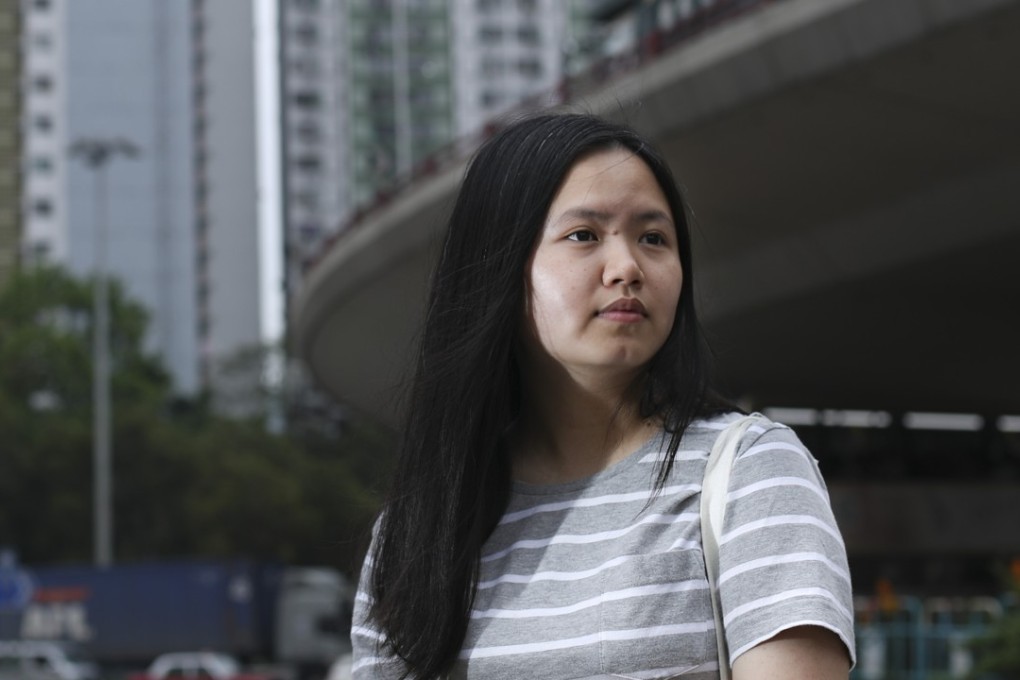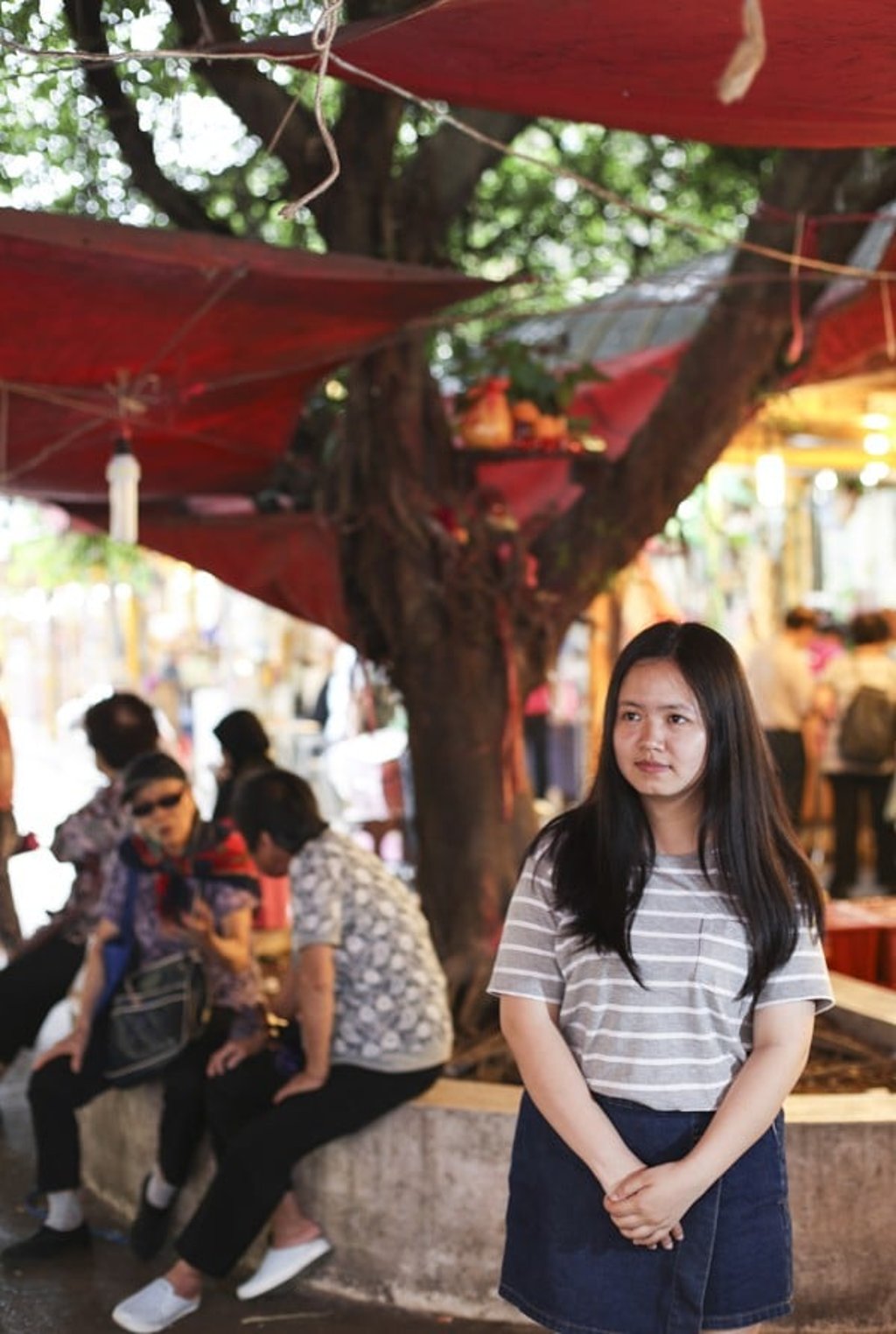Class of ’97: The wealth disparity in Hong Kong shocks Karen Yu but she remains positive and determined to help those in need
As volunteer with Society for Community Organisation Yu has visited elderly and those living in caged homes – subdivided flats with a metal cage that can only accommodate a bunk bed.

Meet the class of ’97, born the year of the handover. Their childhoods tell the stories of Hong Kong’s first two decades after the return to China. Some remember Sars, others took part in Occupy. Now, they’re trying to work out what their future holds – and how Hong Kong’s own uncertain future fits into their plans.
Karen Yu
Small in stature but with a big heart, Karen Yu is optimistic about her own and Hong Kong’s future.
Originally from Taishan in Guangdong province, she came to Hong Kong when she was eight with her mother and sister. They lived at first in Sham Shui Po, which she remembers as being “very terrible” because of the countless times strange men tried to follow her home.
“If you are a girl, you can’t go out if it gets late,” she says. “So, so terrible. When I got home, I cried a lot.”
Her family now lives in public housing at Kai Ching Estate, Kowloon City, minutes from the wet markets of Choi Hung.
It is more convenient and safer, she says.
Brushing back her long black hair – with a few white strands she apologetically describes as genetic – Yu recalls finding the city strange when she first arrived.
Her mother, a primary school teacher back in mainland China, stayed home to take care of her and her sister, who is now in Form Four. Her father was a construction worker.
